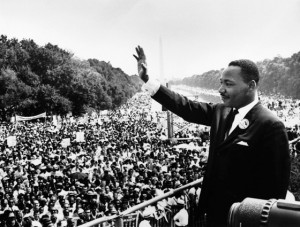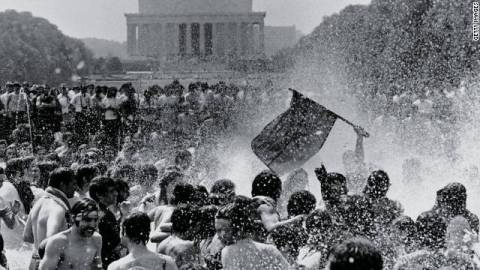With America at the nadir of its 237-year history, and American culture fast becoming the global culture, perhaps it’s the right time to revisit two truncated bursts of creativity in the nation’s history.
 Though I grew up in the Mid-west, which was three or four years behind the quasi-revolution that began in California in the 60’s, I was stamped by it, mainly because I came close to being drafted for the war in Vietnam. Those years are etched not just in memory, but in my DNA, as the current saying goes.
Though I grew up in the Mid-west, which was three or four years behind the quasi-revolution that began in California in the 60’s, I was stamped by it, mainly because I came close to being drafted for the war in Vietnam. Those years are etched not just in memory, but in my DNA, as the current saying goes.
The Haight had long since turned into a hippie museum, flanked by gentrified apartments and houses ascending one of San Francisco’s 70 hills, when I lived there in the late 1980’s. A fellow I know grew up in the city. He graduated during the halcyon year of 1967 and the summer of love, a few years before Haight-Ashbury, and the countercultural movement in general, descended into cynical resignation.
The pendulum swings and the cycles revolve, but now it’s different. The pendulum has broken, and the cycles have been trampled, including the cycles of the earth itself. It’s as that pompous nationalist Thomas Friedman says with unintended irony: “The World Is Flat.”
The hippies (or freaks, as we referred to ourselves) of my generation had no idea what we were up against. It wasn’t just American materialism and militarism, but the dominant aspects of human nature and the human condition itself: Self-interest, conformity, greed and the demands and escapes of the immediate.
Even so, we might have succeeded in bringing about a more peaceful, just and harmonious society if we had taken the time and trouble to forge a true philosophical core. And by philosophy I don’t mean a systematic statement of position, but a deeper insight and understanding of the culture and the times, evocatively expressed.
Instead, we rejected one form of conformity and substituted another. Instead of conforming to the overriding social, political and economic paradigm of money and militarism, there was a feel-good reaction to Johnson and Nixon’s feel-bad agenda in Vietnam and beyond (and I don’t just mean Cambodia).
Nixon was on the ropes after four Kent State students were gunned down by National Guardsman, evidenced by his surreal meeting with anti-war activists at the Lincoln Memorial at 4:00 a.m. on May 9th, 1970. But Kent State made the movement real, and rather than non-violently press the cultural issue home, the vast majority of my generation quit and sold out. No wonder their helicoptered kids became so cynical.
Even as a young man I could see that the counterculture had no real philosophy, but was stitched together from bits and pieces of  superficial political and social critique. These same stale ideas and tropes of America’s place in the world, though they had and still have some validity, have become boilerplate in what passes for revolutionary thinking today.
superficial political and social critique. These same stale ideas and tropes of America’s place in the world, though they had and still have some validity, have become boilerplate in what passes for revolutionary thinking today.
My generation was very good at creative destruction. But since the counterculture’s shallow philosophy did not provide a genuine alternative, it was perennially blamed by an increasingly right-wing political culture for the tattered social fabric we see today.
Nowadays, young people turn cynical before they even become idealistic, while our supposedly progressive president brags about being “really good at killing people” with drones.
There hasn’t just been breakdown in values, there’s been a loss of any notion of higher principle, despite the personal ‘spiritual-but-not-religious trend. Only the heroes of the military-contractor complex are left, ghosts in the machine of a bygone era, the people dead but the juggernaut rolling on, killing far fewer in numbers but far more in spirit.
One often hears, ‘we’ve been here before, and people have always talked about how bad things were.’ But this is the first time in history that the past has been used as a way of denying and avoiding the differences and challenges of the present.
Certainly the insights and ideas are not new. Another burst of creativity occurred before the American Civil War, and was cut short by it. The “Transcendentalists,” as Perry Miller wrote, “were a number of young Americans who in the 1830’s revolted against the rationalism of their fathers…Transcendentalism was the first outcry of the heart in America against the materialistic pressures of a business civilization.”
To say they were ahead of their time is to indulge in understatement. As one of their movement, Charles Mayo Ellis wrote in 1842: “Religion is to cease to be an outward form, the observance of the Sabbath, attendance on church, support of the clergy, the admission of the Bible and the Saviour, the assent of the will. It is to be a personal matter, which each must do for himself.”
Perhaps something is brewing, but there’s no discernable movement, and “the best lack all conviction, while the worst are full of passionate intensity.”
The idealism of the hippie era seems as quaint as the word hippie itself. ‘Peace and love’ have turned into permanent war and perpetual hate. Utopian dreams have turned into dystopian nightmares, from which many self-fulfillingly believe humankind will never awaken.
Can young people turn away from cynical or New Age self-absorption—not toward idealism, much less trying to reconstitute the past, but toward understanding the unprecedented challenges of the present? Can an obsessively and rapaciously materialistic culture radically change, awakening insight, creativity and zeal?
That is the real revolution Emerson, Thoreau, Martin Luther King and every person of their caliber before and since are working for, however long it takes.
Martin LeFevre

